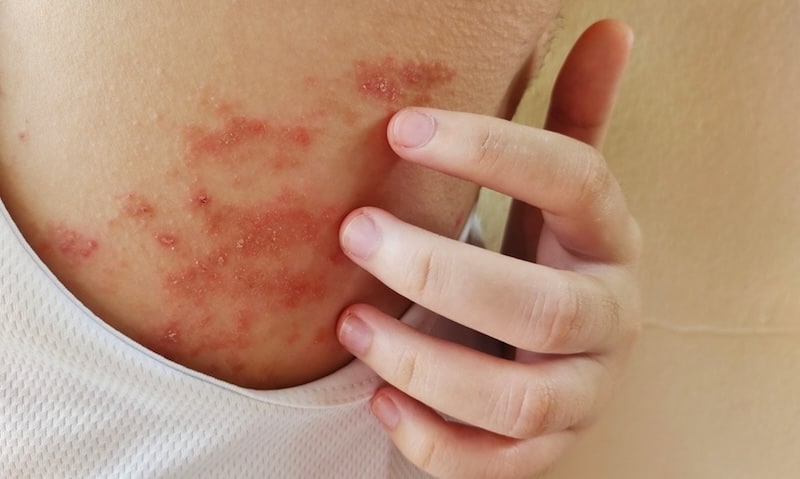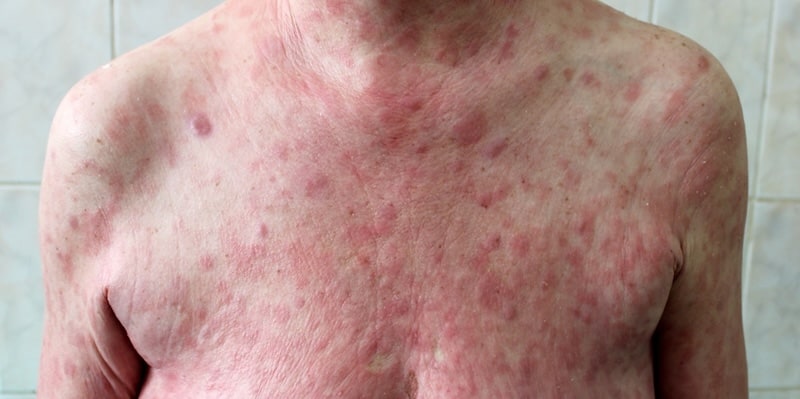Dupixent
Dupixent Cancer Lawsuits
The product liability attorneys at the Neumann Law Group are currently accepting claims of those severely injured by the dangerous drug Dupixent. This is a medication used for inflammatory diseases including atopic dermatitis, eczema, asthma, chronic sinusitis, and eosinophilic esophagitis. It is designed to suppress immune responses can cause flare ups of these conditions. In suppressing these responses, Dupixent can help with symptoms like itching, skin lesions, breathing difficulty, and nasal polyps. The Dupixent injections have been linked to a significant increase in risk for cancer, specifically Cutaneous T-Cell Lymphoma (CTCL), a form of skin cancer, including its subtypes Mycosis fungoides and Sezary syndrome. The main ingredient in Dupixent is called dupilumab.

What Is the Link?
Around 2020, physicians and researchers began to look into the link due to the alarming increase in reports of CTCL in Dupixent users. On April 6, 2024, a study was published, designed to evaluate whether those using Dupixent were at a higher risk of CTCL. They found in an age adjusted model that Dupixent patients are at a 300% higher risk of developing this cancer while using Dupixent. After adjusting the study to include different factors such as race, age, and sex, they found the risk was still two times higher for Dupixent patients to develop CTCL.
A similar study was published in August 2024, and yet again identified the significant link between Dupixent and the increase in development of CTCL. The researchers in this case gathered medical records of over 1 million patients with eczema to compare the outcomes of those treated with Dupixent versus those who were not. Their study revealed that patients with eczema who treated with Dupixent were at a significantly greater risk of developing CTCL, with approximately 60% being diagnosed within their first year of using Dupixent. The results of this study determined that people with atopic dermatitis (eczema) who were treated with Dupixent had a 350% higher risk of developing (CTCL) compared to those who weren’t treated with the drug.
In May 2025, a study published in The Journal of Allergy and Clinical Immunology sought to identify the link between Dupixent and CTCL. They discovered that between 2017 and 2023, there were over 180,000 reports of adverse incidents involving Dupixent use. This study concluded that Dupixent users had 30 times the reports of CTCL than those using alternative medications. They concluded that Dupixent can cause an unmasking or progression of CTCL, driving stimulation and progression.
The manufacturers of Dupixent, Regeneron Pharmaceuticals and Sanofi Genzyme, began marketing this medication as safe and effective for patient use in 2017. Despite their awareness of the significant link between their product Dupixent and CTCL, they failed to warn patients and their doctors, placing profits before safety. Lawsuits are being filed as of October 2025 against the manufacturers of Dupixent claiming that since T-cell lymphoma isn’t identified as a risk on the Dupixent warning label, leading patients to mistake early signs of CTCL for eczema flare ups and therefore continuing with Dupixent treatment, allowing the cancer to progress unnoticed.
What Are the Signs of CTCL?
As mentioned above, certain symptoms of Cutaneous T-Cell Lymphoma (CTCL) can mimic the symptoms of eczema and will often be overlooked by those who suffer from it. If you have taken Dupixent and begin to notice any of the following symptoms, please contact your doctor immediately for further evaluation.

Early Symptoms
- Dry, scaly, or itchy patches of skin
- Red or discolored lesions that may appear flat or thickened
- Itching– often intense and persistent
- Lesions may appear on areas not typically exposed to the sun (e.g., buttocks, thighs, breasts)
Advanced Symptoms
- Tumor or nodule development
- Widespread redness and scaling
- Cracking or pain in affected skin
- Secondary infections due to skin barrier breakdown
Late-Stage Symptoms
These usually indicate blood or lymph node involvement
- Enlarged lymph nodes
- Abnormal T cells detected in the blood
- Hair loss, thickened palms/soles, swelling
- Fever, fatigue, weight loss, or night sweats
Doctors and patients should remain alert for unusual or worsening skin changes, to ensure prompt evaluation for CTCL while using Dupixent.
Do You Qualify for a Dupixent Cancer Claim?
If you are a loved one have, used Dupixent for 30 days or more, been diagnosed with Cutaneous T-Cell Lymphoma (CTCL), Mycosis fungoides, Sezary syndrome, or other cancers, and received your diagnosis after 2017 you should contact a dangerous drug attorney at Neumann Law Group today.
Have you experienced any of the above symptoms and diagnoses related to the use of Dupixent or dupilumab? If so, please contact the Neumann Law Group today to discuss your potential claim. You may be entitled to damages including pain and suffering, lost wages, and loss of consortium. No class action case has been filed against the manufacturers of Dupixent; however, as of October 2025, individual lawsuits are being brought forth. Contact us today attorneys at 800-525-6386 today for a free consultation.







